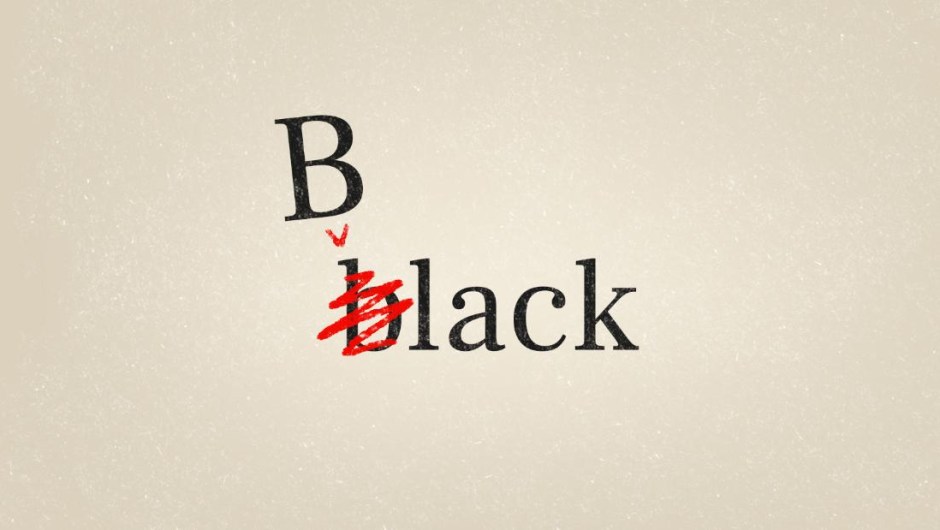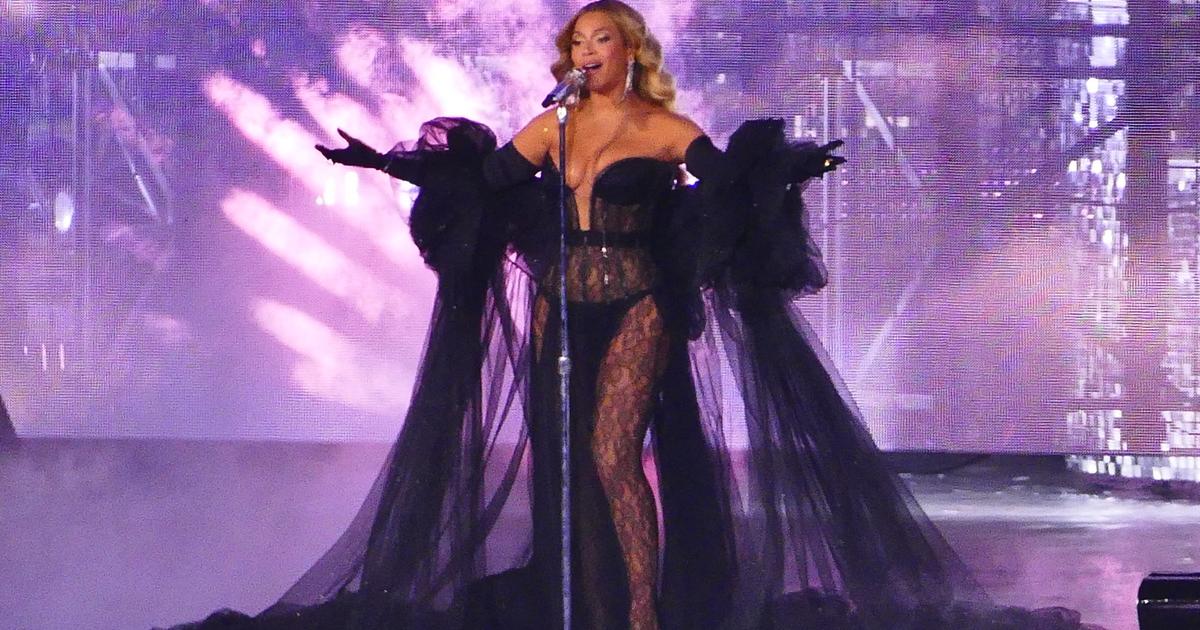Editor's Note: Mireille Grangenois is a former journalist for USA Today, the Baltimore Sun, Business Week and is a past editorial for The Chronicle of Higher Education and Chronicle of Philanthropy. The opinions expressed here are those of the author. Read more opinion at CNNe.com/opinion.
(CNN) - The first letter to the editor I wrote was to David Lawrence Jr. at the Detroit Free Press, one of the first advocates of diversity who led the Miami Herald and championed children's rights. I begged her to change the style of the newsroom and capitalize the “N” in the word “Black” when referring to African Americans. The year was 1981.
This month, fueled in part by protests against the racial injustice that is convulsing the nation, newsrooms across the country have been debating this decades-old issue, and with some fanfare, some big names have spoken out in favor of capital N, including NBC News, CNN and The Associated Press.
Today, my perspective has changed. I would argue that the “n” word in the debate is a false lead and would argue differently. (I find it strange to know that my lowercase “n” will be capitalized here, even in a comment suggesting that maybe it shouldn't be.)
Based on long experience in editorial and corporate roles in a variety of media outlets, I state that more than a few top publishers are likely to be relieved, so many news consumers, media watchers and influencers are caught up in This sample style guide, instead of focusing on the main event: transforming how journalism and outlets approach race and, in the process, leading a genuine transformation in the way the United States confronts racism.
If newsroom leaders don't recognize their own place on the spectrum of institutions that current protests aim to reverse, they are missing the story.
For those editors interested in a serious demonstration of how to respond to this unprecedented moment in America's tragic racial condition, answer this: What percentage of editors in your newsroom are African American, Latino, Asian / Pacific Islander, Native American or LGBTQ?
The same question about your higher level of editorial management. Does the question apply to your offices, from the town hall to the state house and the ends of the world?
When those in your leadership took the issue of capitalizing that "n," did anyone press to confront these questions and be transparent with their employees or audience about the answers?
Unless we can do that, the distraction caused by the “n” word debate runs the risk of trivializing or neglecting backward conversations about race and racism, making them about case sensitivity and unnecessarily alienating potential allies who otherwise they could be understanding.
Before you grapple with the riddle of the “n” word, answer this too: How does your editorial strategy address the demographic evolution of your local community or our nation as it becomes increasingly brown and younger than its legacy audience? The same question goes to your audience growth strategy.
Why am I asking these questions? Because they speak of the need for our society to obtain the best possible coverage (intelligent, consistent, accurate and courageous reports) that provide an unbreakable context and a deep meaning for it, one of the most difficult problems of our democracy.
Not only does capitalization of the “n” not improve coverage to that standard, but it can also offer an easy cosmetic look to news organizations and indeed to a wide range of corporations and institutions to mitigate their need. of feeling like they're on the right side of history.
For well-meaning executives, doing or saying something, anything, right now that draws attention, compassion, maybe even respect, is understandable. But the messy, complex, and painful work required won't come from pressing shift on a keyboard. Change comes from confronting uncomfortable truths.
There are some news leaders who, acknowledging what this moment requires, are looking beyond semantics and into substance. Marty Baron, the acclaimed executive editor of The Washington Post, announced a new editorial role and nearly a dozen newsrooms dedicated to race and identity coverage.
Baron, whose role keeps the lower case “n” if you're curious, is also dealing with a newsroom that challenges his leadership in race-related internal affairs (including coverage, decision-making, and staffing). However, the Post's measures to strengthen its institutional resources to report on race and identity stand out at a time when I dare say that too many publishers, many of them facing the economic work caused by the covid-19 pandemic, failed They want to understand the question of how their institutions will change to face this moment in history.
The 'n' debate and the deepest questions facing the world of journalism did not start with these protests or Black Lives Matter. WEB DuBois launched a letter writing campaign in the early 20th century advocating capitalizing the “N” in “Black”.
The lack of institutional diversity in the media and its role in determining what stories are told and how it has accompanied us for centuries.
I worked as a journalist at The Baltimore Sun, Business Week and was a member of the inaugural USA Today reporting class, where I covered various topics, including civil rights. After leaving USA Today, I worked as director of minority affairs for what was once called the American Society of Newspaper Editors (now the Association of News Leaders after merging with another organization), overseen by their annual survey jobs in the newsroom that measured progress toward diversity.
I successfully argued that the results along with the names of the newspapers were made public. The rejection of some publishers brought a compromise, an option of confidentiality.
The bottom line of my 40 years in the industry was on the commercial side of preeminent newspapers and news sites. In positions with several diverse and important metro markets, I inherited from the predecessors all-white sales departments, an all-white, all-male marketing team, and all-white digital teams.
Like very few successful black peers before me, I achieved the rank of publisher in part because of my ability to remedy those and other legacies of the industry's spoiled racial past by hiring, developing, and leading business teams with the highest possible degree of differences.
Changing the "n" does not do the hard work of changing an institution from within.
It does not invest in detailed reports on the lives of African Americans or what our distressed communities, through collective memory and trauma, have been claiming for decades, until it finally erupted in the Black Lives Matter movement.
Commentators and historians have compared the agitation of the protest in 2020 to 1968, but there is a key point that most have not mentioned. A whole generation of pioneering and legendary African American journalists entered newsrooms only because of the turbulent 1960s. The damned 1968 Kerner Commission report accused the news industry's hiring practices of not reflecting the composition. demographic of the communities they served.
The report cited "white racism" in the form of police malpractice, a flawed justice system, and voter repression, among other institutionalized forms of discrimination that converged to provoke the unrest. The fulminating criticism of the media concluded that it could not adequately cover race issues and reported the news "with the eyes of white men and the white perspective."
While progress has been made, it is difficult to escape the tragic irony of a 52-year-old report, the causes of today's protests, and still insufficient media coverage to bring context and historical significance to these events.
I love newspapers and journalists and I don't like to say that certain attacks from the extreme right on liberal prejudice and elitism in the mainstream media are not entirely inaccurate. A former colleague joked that the wording definition of "diversity" meant hiring someone who was attending a public university.
Ask almost any black journalist how often their ability to fairly report a story because of their race was questioned. Ask a white journalist the same question. For those I asked, it never occurred to either them or their editors that it was even a question to ask.
Among the essential survival skills for successfully navigating and overwhelmingly influencing white newsrooms with their often blatant and subtle biases, many African-American journalists honed the discipline of attacking poor journalism as an indirect fight to challenge privilege, arrogance. and white bias.
My journalism mentors: Jay T. Harris at Gannett and USA Today; DeWayne Wickham, The Baltimore Sun, Karen Aileen Howze, USA Today; It taught me and the legions more if, as an individual, you attacked racial injustice directly in the way you tackle wage inequalities, by rejecting less favorable allocations of stories and beatings, or by challenging the pejorative narrative in black communities: you became the objective . Fight, they taught us, but they always fight for journalism.
So, let's do that, improving the way journalism is done and who is doing it so that it is not about the person defending the change, but rather the institutions committing themselves to making it happen.
For substantial change to occur within newsrooms, most news executives must accept the history of their organizations to perpetuate inequality and avoid a searing self-examination that would actually lead to the dismantling of the artifacts of that history. They must do for themselves what the newsrooms have done for hundreds of years: hold the powerful accountable.
These are the newsroom discussions that are not only worthwhile, but are required for real progress within the industry and for our democracy.
Racism







